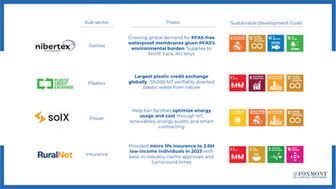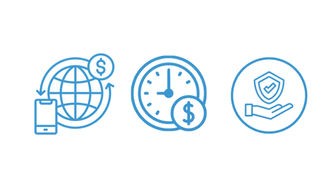Insights
Insights
Insights
Articles
Articles
Deep dives into the broader startup ecosystem—market trends, sector shifts, founder insights, and what’s next for innovation in the region.
Deep dives into the broader startup ecosystem—market trends, sector shifts, founder insights, and what’s next for innovation in the region.

Jun 2025
Harvesting Potential: Scaling Technology and Market Access for All Filipino Farmers

Apr 2025
From Startup to Scale up: The Challenges of Growth Beyond Series A

Oct 2024
The Double Meaning of Sustainability

Aug 2024
The Rising Middle Class: A Catalyst for D2C Brands

May 2024
Bridging the Financial Gap: How Innovation is Driving Inclusion

Nov 2020
Building the Highway for Payments

Nov 2020
From Taxi Hailing To Monumental Super App

Nov 2020
Top 20 Largest Startup Transactions

Nov 2020
The Philippine Startup Scene Amidst the COVID-19 Crisis

Nov 2020
Philippine E-Commerce Shows Indications of Promising Growth

Nov 2020
Building the Country’s Fastest-Growing Social App

Nov 2020
Corporate Venture Drives Investment In IT And Software

Nov 2020
Driving High-Impact Entrepreneurship in the Philippines

Nov 2020
Helping Investors Help Startups

Nov 2020
First Half of 2020 Sees Significant Deal Activity Despite COVID-19

Nov 2020
Healthcare Shows Improvement In The Adoption Of Modern Startup Technology

Nov 2020
EdTech Is Expected To Grow As Startups Fill In Learning Gaps During Quarantine

Jun 2025
Harvesting Potential: Scaling Technology and Market Access for All Filipino Farmers

Apr 2025
From Startup to Scale up: The Challenges of Growth Beyond Series A

Oct 2024
The Double Meaning of Sustainability

Aug 2024
The Rising Middle Class: A Catalyst for D2C Brands

May 2024
Bridging the Financial Gap: How Innovation is Driving Inclusion

Nov 2020
Building the Highway for Payments

Nov 2020
From Taxi Hailing To Monumental Super App

Nov 2020
Top 20 Largest Startup Transactions

Nov 2020
The Philippine Startup Scene Amidst the COVID-19 Crisis

Nov 2020
Philippine E-Commerce Shows Indications of Promising Growth

Nov 2020
Building the Country’s Fastest-Growing Social App

Nov 2020
Corporate Venture Drives Investment In IT And Software

Nov 2020
Driving High-Impact Entrepreneurship in the Philippines

Nov 2020
Helping Investors Help Startups

Nov 2020
First Half of 2020 Sees Significant Deal Activity Despite COVID-19

Nov 2020
Healthcare Shows Improvement In The Adoption Of Modern Startup Technology

Nov 2020
EdTech Is Expected To Grow As Startups Fill In Learning Gaps During Quarantine

Jun 2025
Harvesting Potential: Scaling Technology and Market Access for All Filipino Farmers

Apr 2025
From Startup to Scale up: The Challenges of Growth Beyond Series A

Oct 2024
The Double Meaning of Sustainability

Aug 2024
The Rising Middle Class: A Catalyst for D2C Brands

May 2024
Bridging the Financial Gap: How Innovation is Driving Inclusion

Nov 2020
Building the Highway for Payments

Nov 2020
From Taxi Hailing To Monumental Super App

Nov 2020
Top 20 Largest Startup Transactions

Nov 2020
The Philippine Startup Scene Amidst the COVID-19 Crisis

Nov 2020
Philippine E-Commerce Shows Indications of Promising Growth

Nov 2020
Building the Country’s Fastest-Growing Social App

Nov 2020
Corporate Venture Drives Investment In IT And Software

Nov 2020
Driving High-Impact Entrepreneurship in the Philippines

Nov 2020
Helping Investors Help Startups

Nov 2020
First Half of 2020 Sees Significant Deal Activity Despite COVID-19

Nov 2020
Healthcare Shows Improvement In The Adoption Of Modern Startup Technology

Nov 2020
EdTech Is Expected To Grow As Startups Fill In Learning Gaps During Quarantine
Venture Insights
Venture Insights
A behind-the-scenes look at why we invest. We break down our thesis, the opportunities we see, and the conviction behind partnering with standout startups.
A behind-the-scenes look at why we invest. We break down our thesis, the opportunities we see, and the conviction behind partnering with standout startups.
News
News
Foxmont in the headlines. Press features, announcements, and media highlights from across the ecosystem.
Foxmont in the headlines. Press features, announcements, and media highlights from across the ecosystem.













